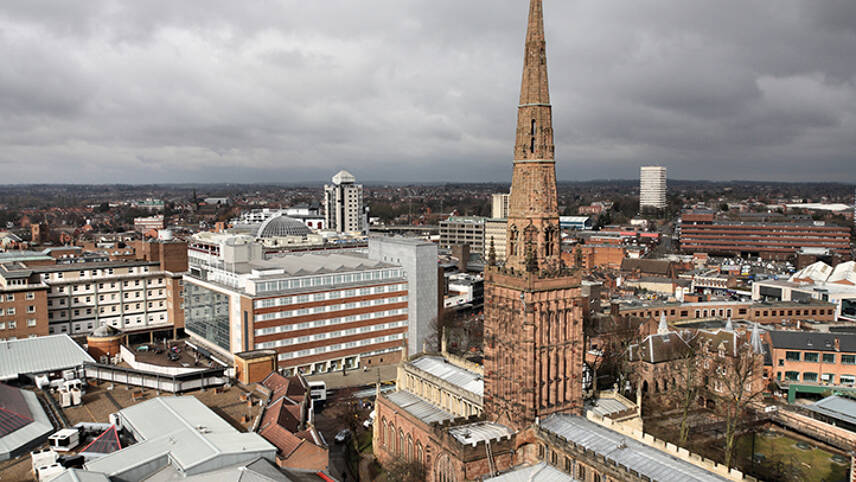This premium content is exclusive to edie Members.
To find out more about edie Membership, please click below.
If you are an existing member, login here

At a glance:
Who: Coventry City Council
What: 15-year energy decarbonisation portfolio
Where: Coventry
Why: To reduce emissions associated with cattle and beef production
When: Rolled out on 18 September 2023
The Challenge
According to a survey of councils from the Climate Change Committee (CCC) no local councils in England believe their climate plans are fully aligned with UK-wide legally binding net-zero targets, and are looking to Whitehall for reforms to decarbonise their energy, buildings and transport on a budget.
The Solution
Coventry City Council has joined forces with energy giant E.ON, which has been based in the city for almost 30 years, to forge a 15-year partnership which will transform the city’s approach to carbon reduction whilst helping people save money and boosting the local economy.
How it works
Through the 15-year partnership, E.ON has been named the city’s new Strategic Energy Partner, forming an alliance aimed at transforming the city into a cleaner and more sustainable environment that will drive the green economy, create new jobs and increase skills all while reducing energy costs for residents.
The partnership is believed to be a first for the UK and is designed to deliver benefits for the local community and the wider economy. The Council and E.ON will work together to develop low-carbon ideas and projects for the benefit of Coventry residents.
Projects discussed for delivery by the partnership so far include the creation of a 30MW solar farm, bringing solar power into schools across the city and decarbonisation of a number of Council vehicles and depots.
Work is also intended to include solar energy for public buildings, a push to electrify transport with greater electric vehicle charge point access for residents, and improving energy efficiency across homes and businesses.
The next steps
The council and the energy firm believe that signing up to a single partner over 15 years will help long-term planning and see a joined-up strategic approach to decarbonisation that can also consider social benefits and projects across the city.
By utilising one partner, the council believe that project rollouts and general feedback and advice will remain clear and consistent, unifying efforts to decarbonise energy usage across Coventry while saving residents on energy bills – which have risen exponentially in recent years.
As well as getting on with the current list of projects, the partnership will be engaging with stakeholders across the city over the coming months, including community groups, businesses and industry leaders, to help define the outcomes the strategy needs to deliver.
Industry context:
A survey of decision-makers at 50 local authorities in the UK has found that most have not begun properly delivering their net-zero transition plans on the ground, with funding constraints being the most common barrier to progress.
Conducted by property consultancy Cluttons and sustainable design consultancy AESG, the survey found that just one-quarter of the council representatives classed their employer as being properly into the ‘delivery’ phase of their net-zero strategy.
When the survey respondents were asked about the biggest challenges to delivering their council’s net-zero ambitions, 71% said that financing constraints were the biggest challenge. Rounding out the top three most commonly-cited challenges were a lack of in-house skills and a lack of resource.
About the Council:
The UK Government has a target of net zero by 2050 and the West Midlands target is to achieve net zero carbon emissions by 2041. Work on a Coventry Net Zero Routemap found that in 2022 around £620m was spent over a year on energy in the city.
The Council’s Draft Climate Change Strategy and Net Zero Routemap, published earlier this year, set out an ambitious vision for the city’s journey to net zero to create a more sustainable and prosperous future for local people.
It points out that the city, which has a population of 345,000 people, has reduced emissions by 48% since 2000.
The Council has identified and evaluated more than 700 different options that Coventry could adopt in order to reduce its carbon emissions and transition towards net zero and found that Coventry could save £196m a year from its energy bill through measures that would pay for themselves.
© Faversham House Ltd 2024 edie news articles may be copied or forwarded for individual use only. No other reproduction or distribution is permitted without prior written consent.

